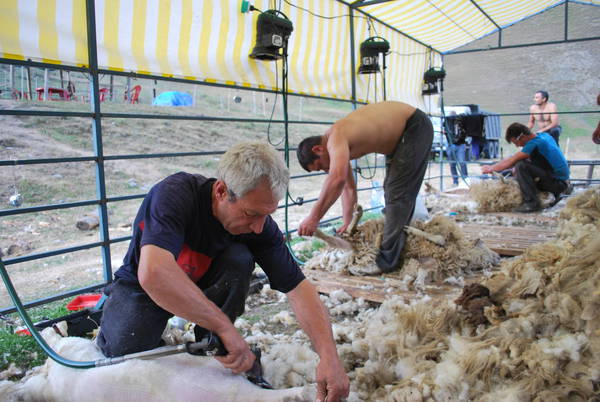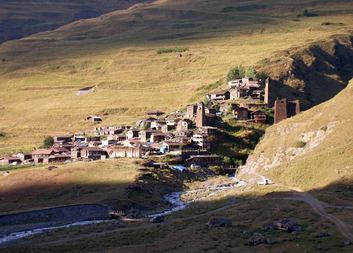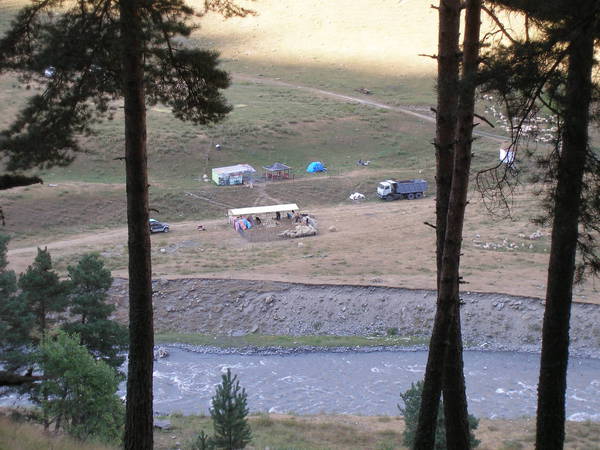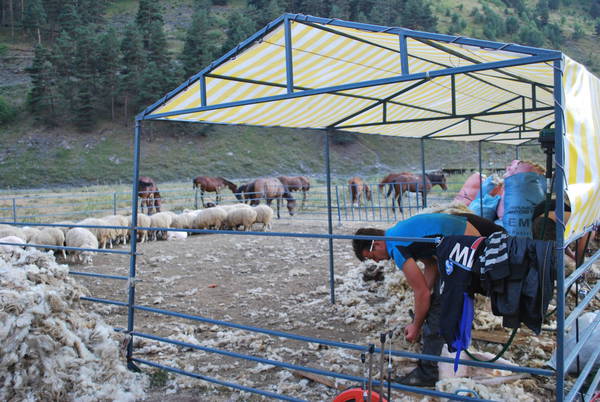The Tusheti breed of sheep is distinguished by a number of unique qualities; its wool works as an excellent thermal insulation and its meat is exceptionally tasty. Sheep shearing in Tusheti began in August of this year. In order to earn the highest quality material possible, the sheep need to be cared for in specific ways. Further, better shearing equipment is also needed.
 Twice a year, in May and October, Tusheti shepherds in Northeast Georgia wander with their herds over the Abano Pass (amounting to almost three thousand metres above sea level) in order to move the sheep from their summer mountain pastures to wintering places in the Shiraki Steppe. The track is 300 kilometres long and the hillsides of The Main Caucasus Ridge are usually covered with snow. Indeed, the only access road passable for terrain vehicles is snowbound and in many places it is necessary to slide the sheep on coats to prevent them from sinking into the snow.
Twice a year, in May and October, Tusheti shepherds in Northeast Georgia wander with their herds over the Abano Pass (amounting to almost three thousand metres above sea level) in order to move the sheep from their summer mountain pastures to wintering places in the Shiraki Steppe. The track is 300 kilometres long and the hillsides of The Main Caucasus Ridge are usually covered with snow. Indeed, the only access road passable for terrain vehicles is snowbound and in many places it is necessary to slide the sheep on coats to prevent them from sinking into the snow.
Despite impeccable care of the herd, wool sales have stagnated in the recent years. Traditionally, the wool is used for its strength, flexibility (a yarn is very suitable for weaving carpets) and large diameter of cavity fibres which causes it to efficiently retain heat. Despite these properties, buyers from foreign companies are currently only concerned with wool that is cleaned in modern ways. In order to compete on the market therefore, it is necessary for the Tusheti shepherds to cut their sheep’s wool with electric clippers instead of traditional scissors.
One of the activities carried out by Caritas CR in Tusheti is the provision of support to local sheep breeders. In August during the first sheep shearing process, shepherds were able to use donated clippers to cut the sheep wool. Not far from the village of Darthlo, five shepherds from the Golden Fleece cooperative shaved nearly 2,000 lambs in only one week. Although it was their first time cutting with electric clippers, some of the shepherds managed to cut up to 150 sheep in one day.
The director of the Golden Fleece cooperative, Beso Lagidze, hopes that in September his assistants will manage to shear three thousand sheep in the Pirikhithi Valley. He also firmly believes that the Tusheti wool will be successfully enforced in the marketplace. This will be supported by other planned activities by Caritas CR.









